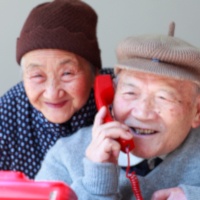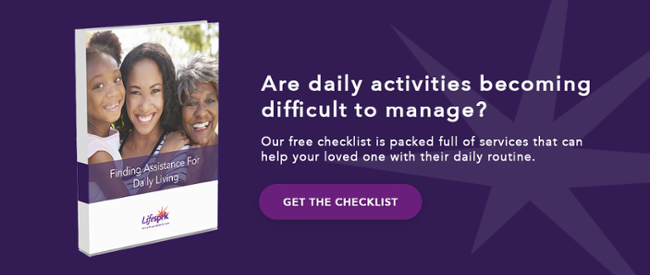
This past February, a month before Minnesota’s stay-at-home order, I took my 88-year-old mother for her annual Medicare wellness visit. She aced the usual battery of tests (blood pressure, oxygen levels, reflexes, strength, balance, BMI) with the exception of cognitive functioning. I knew my mom had trouble remembering things, but I was too close to be objective. According to her doctor’s assessment, my mom’s memory and processing skills showed a marked decline since last year. And that was before COVID-19 infiltrated our lives.
From Full Life to Lockdown
In mid-March, my mother’s assisted living facility went into lockdown mode. Immediately, all group activities—shopping trips, movies, Scrabble games, book clubs, buffet breakfasts, exercise classes, birthday celebrations—were canceled, as were all visits with friends and family. My mom’s life changed overnight. Naturally outgoing and gregarious, her world shrank to the size of her tiny apartment. She ate her delivered meals in her little kitchen and took walks by herself. Even though I could still drop off sundries and cat food, we weren’t allowed to see each other.
Download our Guide: Finding Assistance with Activities of Daily Living
Impact of Isolation
Four months into the pandemic and her facility is still thankfully COVID-free, but the extreme social isolation has taken a massive toll on my mother’s mental and emotional health.
Recent reports indicate she’s not alone. The National Institutes of Health (NIH) predicts that COVID-19 will have a profound and lasting impact on the health and wellbeing of older adults, and that social isolation and loneliness are likely to be among the most affected health outcomes.
The implications for seniors are staggering. According to the Centers for Disease Control and Prevention (CDC), social isolation was associated with a roughly 50% increased risk of dementia, 29% increased risk of heart disease, and 32% increased risk of stroke, while loneliness was associated with higher rates of depression, anxiety, and suicide.
On the surface, these dire statistics might seem to apply only to extroverts (like my mom), while for introverts, social isolation is a welcome relief. But we humans are inherently social beings. As a species, we’ve evolved in part through cooperation, collaboration, and community. As noted in the MIT Technology Review, introverts don’t want to be alone all the time, while extroverts actually enjoy moments of quiet time. Where they differ is in how they recharge and process information: introverts do it quietly, extroverts do it socially. Bottom line, social isolation is tough on everyone.
How to Stay Safe and Connected
Older adults have always been at higher risk for social isolation, but the COVID-19 pandemic has made the problem more difficult to address. Still, there are ways to counteract some of the mental health issues associated with isolation and loneliness. Lifespark nurses have been working hard these past few months to keep the spark in peoples’ lives by helping them physically distance but socially connect. That is critically important to overall wellbeing as we saw with my mom. Here are a few suggestions they offered:
- Video calls: If your loved one is at an assisted living facility or nursing home, the staff may be willing to set up video calls on Google Duo, Skype, WhatsApp, Zoom, or FaceTime. Invite your siblings, partners, kids, and pets and make it a party!
- Old-school phone calls: Nothing beats face-to-face, but daily phone calls from family members can help bridge the gap. This route made the most sense for my mom. Initially, it took some coordination, but thanks to my extended family, my mother has enjoyed more phone calls during these past four months than in the previous four years combined.
- In-home care: Consider working with a senior care services agency like Lifespark that understands the importance of supporting your loved one’s desires and interests, as well as their medical needs. One of many benefits of hiring in-home care during the pandemic is that home health aides are considered essential workers allowing them to enter facilities on lockdown.
Sparking Lives in Challenging Times and Beyond
Our mission at Lifespark is to help people age magnificently. We do that by putting everything we have—our expertise, our people, and our passion—into sparking the lives of those we serve. During challenging times and beyond, our whole-person approach is proven to help seniors live happier, healthier, and more independent lives.
Request a free consultation and discover how we can help your loved one live a sparked life.



